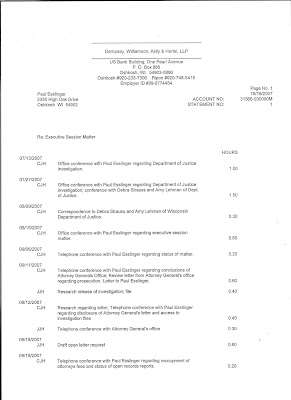EQUALITY WINS ROUND ONE - CONSTITUTIONAL CHALLENGE TO MARRIAGE BAN WILL PROCEED
“Yesterday’s ruling highlighted the need for voters to have confidence in the voting process,” noted Michele Perreault, attorney and Vice President of Fair Wisconsin. “Voting, as the bedrock of our democratic society, is to be protected above all. Based on this reasoning, Judge Niess allowed a challenge to the constitutional amendment banning marriage and civil unions to go forward. That’s good news for all families.”
The challenge is based on another provision in the Wisconsin Constitution which forbids “logrolling” in proposals to amend the Constitution. That is, any proposed amendment to the Constitution must be limited to a single subject so that voters can make separate decisions about each proposed change. The plaintiff in the case, married father of nine William McConkey, contends that the amendment violated the Constitution by offering two distinct questions. The amendment forbids same-sex couples from marrying, and also forbids the State from providing for a legal relationship identical to or substantially similar to that of marriage for all couples.
McConkey contends that the legislature violated the anti-logrolling provision. Polling in 2005 and 2006 showed that voters supported allowing same-sex couples similar legal protections as those provided by marriage, such as through Vermont-style civil unions, but felt marriage should be reserved for heterosexual couples. By placing both questions in one proposed amendment, voters were forced to vote the same way on both questions, even if given the choice they would have voted no on one question and yes on the other. Fair Wisconsin warned legislators about this violation before and during the campaign.
“Judge Niess was exactly right. All Wisconsin voters have a right to a procedurally legitimate referendum on a proposal to amend Wisconsin’s Constitution, and all voters are harmed by having a constitutionally defective question placed before them,” Perreault noted. “It’s clear there were two distinct questions on the ballot - and that is not constitutional.”
The next step is for Judge Niess to rule on whether the amendment adopted by the voters last year was in fact procedurally defective and therefore illegitimate. Fair Wisconsin is confident that when given a real choice, Wisconsin voters will vote for fairness for all Wisconsin citizens. For more information about Fair Wisconsin and its efforts to advance civil liberties, visit www.fairwisconsin.com.



